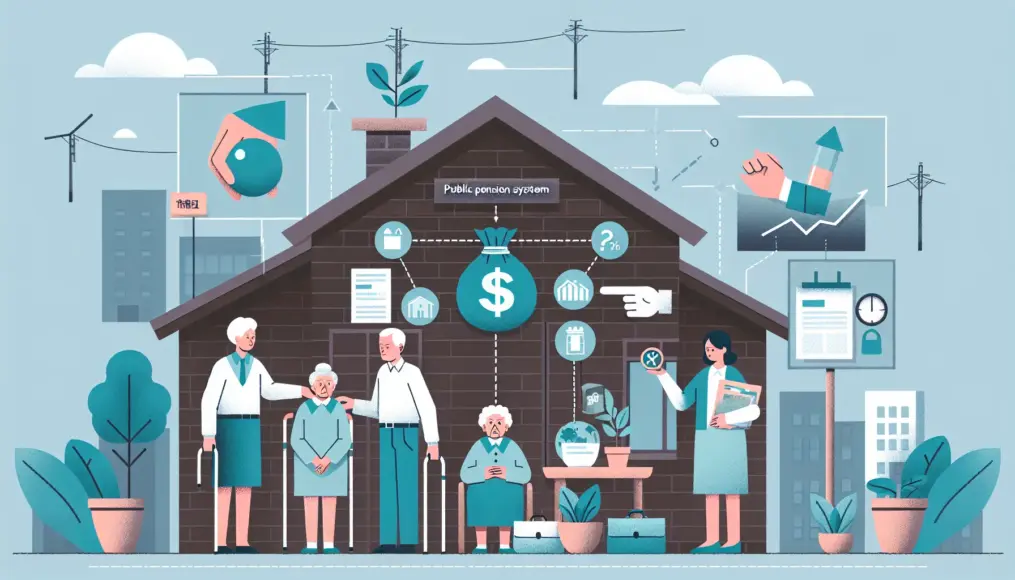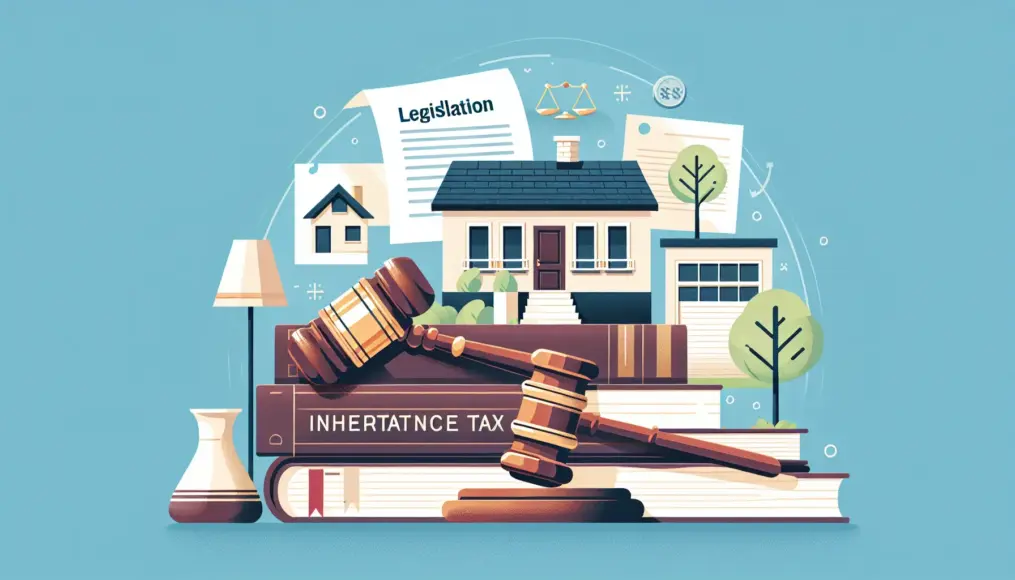Public pension systems play a crucial role in supporting our lives. However, in today’s society, how have their roles and impacts evolved? With the aging population and declining birthrates, the sustainability of pension systems has come under scrutiny. Let’s explore the future of public pension systems in Japan together.
This article will cover the fundamental roles of public pension systems, the challenges they face in the modern era, and future prospects. We’ll delve into how pension systems affect our society and discuss the necessary reforms that should be implemented.
- The fundamental role and importance of public pension systems
- Challenges facing pension systems today
- The impact of future pension systems on society
The Fundamental Role of Public Pension Systems
Public pension systems play a vital role in supporting our lives. Designed to ensure that all citizens can enjoy a stable life in their later years, these systems are essential not only for providing financial security but also for promoting economic stability. This allows citizens to live with peace of mind and engage in consumer activities.
Understanding how pension systems function is crucial when considering our own futures. In this section, we will take a closer look at their role in safeguarding citizens’ lives and the mechanisms that ensure economic stability.
Safeguarding Citizens’ Lives
The primary function of public pension systems is to guarantee the well-being of citizens. This is especially important for the elderly and individuals with disabilities, for whom pensions serve as a foundation for their livelihoods. With a pension in place, people can approach retirement with confidence, alleviating concerns about daily living expenses and medical costs.
Moreover, pension systems also protect citizens from economic risks. In the event of unforeseen circumstances like unemployment or illness, pensions provide essential support to help maintain their standard of living.
- Public pension systems are crucial for supporting citizens’ lives
- They serve as a foundation for the elderly and individuals with disabilities
- They also play a role in protecting citizens from economic risks
Ensuring Economic Stability
Public pension systems contribute to the economic stability of the entire nation, going beyond just individual financial security. By providing people with a steady income, pensions stimulate consumer activity, which in turn revitalizes the economy. In particular, when seniors receive pensions, it supports local businesses and commercial activities.
Additionally, pension systems help to address social inequalities. By providing stable income to lower-income groups, they contribute to overall social stability.
- Pensions stimulate consumer activity
- They contribute to the revitalization of the economy
- They also help to address social inequalities
Modern Challenges and the Limitations of the Pension System
The public pension system plays a vital role in supporting the livelihoods of citizens, but it faces various challenges in today’s world. Notably, the aging population and increasing financial burdens have a significant impact on the pension system. Addressing these issues requires essential reforms to the system.
In this section, we will take a closer look at how the aging population affects the pension system and how the financial burdens are escalating. This exploration will help us understand the limitations of the public pension system and consider potential pathways for the future.
Impact of the Aging Population
The aging population is one of the major challenges facing the pension system. With declining birth rates, the number of future pension recipients is decreasing, while the number of elderly individuals is on the rise. This situation disrupts the balance between the number of pension beneficiaries and contributors, jeopardizing the sustainability of the system.
Moreover, as more elderly individuals rely on the pension system, social security costs are ballooning, increasing the financial burden on younger generations. This dynamic contributes to intergenerational tensions.
- The aging population threatens the sustainability of the pension system
- The balance between beneficiaries and contributors is shifting
- The financial burden on younger generations is increasing
Increasing Financial Burdens
The financial burden of the pension system is growing year by year. As the elderly population increases, pension payouts rise, while the economic foundation for younger generations weakens, making it increasingly difficult to maintain the pension system. Particularly, as life expectancy increases, the duration for which individuals receive pensions lengthens, adding further financial pressure.
Additionally, with economic growth slowing down, tax revenues—which fund the pension system—are stagnating. If this situation continues, urgent reforms to the pension system will become necessary, presenting new challenges for the entire population.
- Rising pension payouts are increasing financial burdens
- Increased life expectancy is extending the duration of pension receipts
- Slowing economic growth is reducing pension funding sources
The Need for Pension System Reform and Its Direction
Today’s public pension systems are grappling with numerous challenges. As a result, reform is essential to create a sustainable pension framework. In this section, we’ll explore why pension reform is crucial and discuss the direction it should take. By searching for sustainable models and learning from the successful experiences of other countries, we can improve our own pension system.
Pension reform isn’t just about making changes to a system; it’s a critical issue that directly affects the lives of all citizens. Together, let’s consider what reforms are necessary for the future and how we can implement them effectively.
Searching for Sustainable Models
To achieve a sustainable pension system, we first need to reassess the system itself. The current framework is not adequately addressing the challenges of an aging population and increasing financial burdens, making fundamental reform necessary. This includes reviewing the amounts of pension benefits and contributions, as well as restructuring investment strategies.
Additionally, diversifying the pension system is an important aspect. Designing a flexible system that accommodates various lifestyles and economic situations can enhance citizens’ sense of security. This flexibility is likely to encourage more people to participate in the pension system.
- A reassessment of the system is necessary for a sustainable pension framework
- Flexible reviews of benefit amounts and contributions are essential
- Designing the system to cater to diverse lifestyles is crucial
Learning from Successful Examples Abroad
When it comes to advancing pension reform, looking at successful examples from other countries can be incredibly beneficial. For instance, Nordic countries have relatively stable pension systems that provide strong support for citizens’ livelihoods. These nations offer comprehensive social security in exchange for high tax rates, and their citizens report high levels of satisfaction.
Japan is encouraged to build its own unique system while taking cues from these successful models. Specifically, advancing fairness in contributions based on income and diversifying pension funding sources can lead to a sustainable system.
- Examples from other countries provide valuable insights for reform
- Nordic countries have highly stable pension systems
- Japan needs to develop its own distinct pension framework
The Impact of Future Pension Systems on Society
The future of pension systems holds the potential to significantly influence not just individual lives, but society as a whole. Particularly, by addressing inequality and offering new forms of social security, these systems are expected to contribute to the realization of a more equitable society. In this section, we will explore how future pension systems can tackle these challenges.
Pension systems are not just vital for providing economic stability; they are also crucial for fostering harmony within society. Let’s delve into how these systems will evolve to meet the needs of tomorrow’s society.
Contributing to Reducing Inequality
One of the key roles that future pension systems must play is addressing social inequality. Currently, many countries are witnessing a widening gap between the rich and the poor, a trend that is particularly pronounced among the elderly. For public pension systems to effectively combat this inequality, they need to ensure fair benefits that are aligned with income levels.
Moreover, by establishing mechanisms to support low-income individuals, pension systems can help secure economic stability and promote overall social harmony. This could lead to an improved standard of living for all citizens, allowing them to enjoy a more secure retirement.
- Pension systems contribute to reducing social inequality
- Fair benefits based on income levels are essential
- Securing economic stability can enhance living standards
A New Form of Social Security
Future pension systems will need to explore new forms of social security that go beyond traditional frameworks. For instance, leveraging advancements in technology to improve information dissemination and services could make it easier for individuals to choose the pension plans that suit them best.
Additionally, strengthening connections with local communities can enhance the efficiency and effectiveness of social security. By building pension systems that are rooted in local contexts, we can provide support tailored to the unique characteristics of each area, better meeting the diverse needs of the population.
- A new form of social security is needed
- Enhancing information provision through technology
- Strengthening collaboration with local communities for greater efficiency
Conclusion
The public pension system plays a crucial role in supporting the lives of citizens and ensuring economic stability. However, in today’s society, it faces various challenges, such as an aging population and increasing financial burdens. Addressing these issues calls for reforms that will make the pension system sustainable.
The future of our pension system is expected to focus on reducing social disparities and exploring new forms of social security, ultimately aiming to improve the overall standard of living for everyone. It’s essential to evolve the pension system so that more people can confidently look forward to a secure retirement.
- The public pension system is vital for supporting the lives of citizens.
- Today’s pension system grapples with challenges posed by an aging population and financial pressures.
- The future pension system must seek to address inequalities and explore new social security frameworks.
Deepening our understanding of the public pension system is crucial as we consider our future. We would love to hear your thoughts and feedback on this article!



Comment